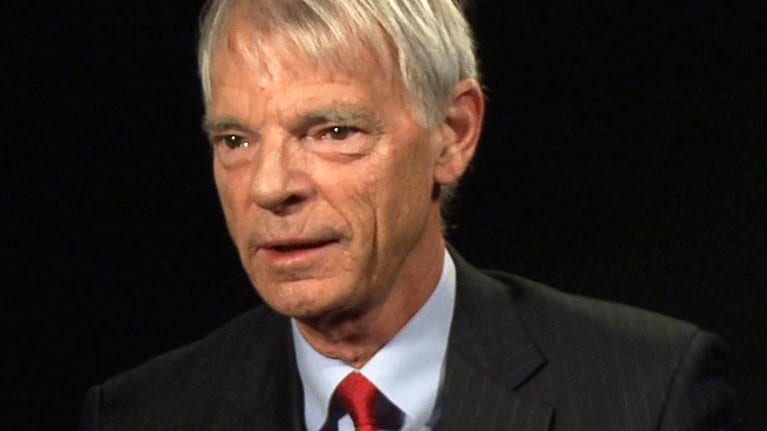The Internet has enabled truly global commerce, fuelled by the availability of information and electronic financial flows. In this video interview, Devin Wenig, president of eBay Marketplaces, one of the world’s largest online markets, discusses the opportunities and challenges that cross-border commerce presents for his company, its customers, and small businesses alike. This interview was conducted by McKinsey Publishing’s Simon London. An edited transcript of Wenig’s remarks follows.
Interview transcript
We’re the largest cross-border marketplace in the world. And over 20 percent of our overall business is cross-border, and it’s the fastest-growing part of our business. So it’s incredibly important to us, but I think it’s incredibly important to commerce generally.
Marketplaces like eBay that, historically, may have had pockets of inventory in domestic markets now increasingly view it as a single global marketplace. We should be trying to sell all inventory to all consumers everywhere all the time.
When vision meets reality
It’s a great vision, but the reality meets the vision pretty quickly. And the reality is, there’s friction everywhere in cross-border trade. That friction is in currency; that friction is in payment; that friction is in trust; that friction is in government rules and regulations like customs, which create difficulty in importing goods; that friction is in language. I could go on and on.
Now the interesting thing is, all of those are inhibitors to global trade, but they’re also opportunities, because when you solve those problems you see cross-border trade take off. So every time we take little grains of sand out of the gears, every time we take friction out of the buying process, we see buying and GDP increase.
Organization, not warehouses
A lot of emerging markets, like Russia, have many of the characteristics that we saw in more established Western digital economies 15, 20 years ago. Trust is an enormous factor, so they are cash economies. “I don’t pay for anything until it’s at my door, and then I’ll give you rubles and take the item.” Now of course that’s going to change; that is very inefficient. But today, that’s the way those economies operate.
Again, solving those problems creates great opportunities. It’s easier to solve them across the industry than individually. So literally, we have what might seem very old-school solutions to modern problems. We have armored cars that drive around Russia collecting cash and delivering goods. In today’s e-commerce environment, that’s the way you get it done.
We’re starting to see the adoption of digital payment, like PayPal, but it’s early days. I suspect it’ll take several years until they start to come around, trust e-commerce, use digital-payment technologies, and we can move on from 1.0 to probably jump head to 3.0 or 4.0.
We work with partners to run warehouses. We work with partners to fulfill. We work with partners to deliver at the last mile. But we try to be asset light. Some people talk about the sharing economy. The last few years have seen an explosion in the sharing economy, which, in essence, is services-based marketplaces that help balance supply and demand. No different in our business.
When you look at things like logistics and fulfillment, there is a lot of capacity that’s been built into stores, warehouses, courier networks. I don’t think that the world needs more warehouses. What the world needs is organization of what’s out there, and that’s the role that we see ourselves playing.
Small sellers, big world
If I am a small seller, I might look at a number of forces that are closing in on me. I might look at price transparency as a negative. I might look at behemoths like eBay and Amazon and say, “How do I compete?” But the fact is, incredible benefits have opened up. You can have a small corner store and have access to billions of the world’s consumers.
Building out capabilities for the industry means that as a small bookseller or as a small antiques seller I now can have the same translation services, the same demand around the world, the same fulfillment, the same payment options that the biggest retailer in the world might have. It doesn’t mean it’s easy to be a small seller, but for those that see what’s happening and those that are utilizing technology to its fullest, this is an incredible time.
We have small sellers around the world that are now doing more than half of their business outside of their national borders. Picture a small antiques seller in Chicago, and we have lots of them who are now selling more than 50 percent of their inventory in 110 countries around the world. That would not have been possible even 24 months ago.
Webcast
Globalization Goes Digital: Why It Matters for Countries, Companies, and Citizens
A recent report on global flows from the McKinsey Global Institute, Global flows in a digital age: How trade, finance, people, and data connect the world economy, was the subject of an event at the New America Foundation featuring speakers including MGI director James Manyika and MGI partner Susan Lund, Google chairman Eric Schmidt, Allianz chief economic advisor Mohamed El-Erian, economist Matthew Slaughter, and Siemens US president and CEO Eric Spiegel. To view a full replay of the webcast, visit the New America Foundation website.

